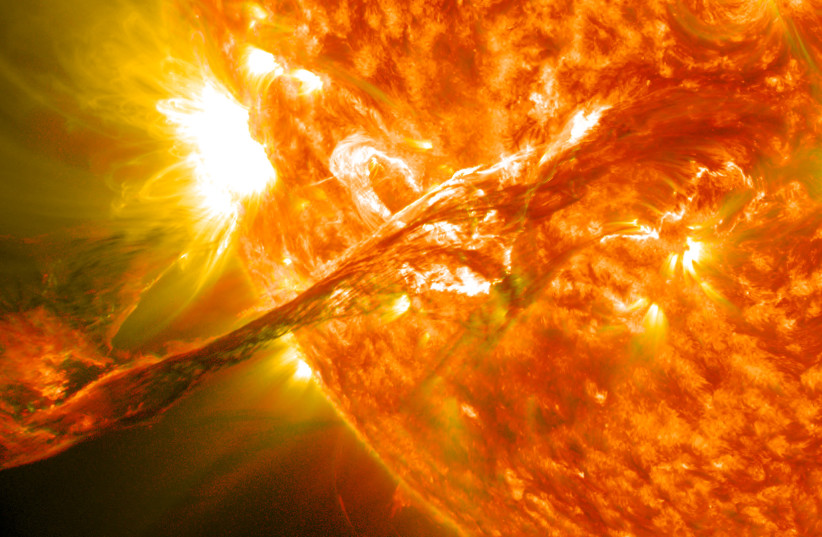The solar system could theoretically be completely thrown out of balance and end up having all the planets smash into each other in catastrophic collisions - all if a passing star causes Neptune's orbit to be moved just 0.1%, according to a new study.
This would all happen on the occasion of a stellar flyby, a relatively common event in space that has helped shape planetary systems. It wouldn't be complete and instantaneous destruction, but it could cause small perturbations that may, eventually, destabilize the solar system to the point of disaster.
The findings of this study were accepted for publication in the peer-reviewed academic journal Monthly Notices of the Royal Astronomical Society.
<br>The solar system: A delicate orbital balance
Our solar system is an arrangement of celestial objects like planets, moons and asteroids all tied together through the power of the Sun's gravity, orbiting around it.
Without the Sun's gravity, there wouldn't be much keeping the solar system together, though every planet's own gravitational pulls have their own influences on the Sun and each other.

This is why the stability of the gravity in the solar system has been studied multiple times ever since the days of Sir Isaac Newton.
These studies have included mathematical calculations, observations of stellar bodies and simulated models, many of which have come to varying conclusions regarding the future of the solar system, though the most common one is that there is a 1% change in Mercury's orbit may one day destabilize — caused by resonance between Mercury and Jupiter — and it could either collide with something or just end up escaping the orbit of the Sun altogether.
That's all fine and good on its own, but take into account a gaping issue of all these models: They assume any changes to the solar system will be internal.
But in reality, the solar system is far from some isolated band of celestial objects around the Sun all alone in the empty reaches of the universe. Rather, the solar system is just one of untold millions or billions of planetary systems within the Milky Way galaxy, also inhabited by stars, asteroids, planets, comets and more. Each of these has its own orbits and paths throughout the universe, all in tune with the great structure we all find ourselves in.
And naturally, these external factors in our relatively crowded galaxy could impact the solar system as well.
Enter stellar flybys.
<br>What are stellar flybys?
When stars fly too close to a planetary system, their mass and gravitational pull may cause the system to be impacted.
This has happened before. Back in 2019, scientists at UC Berkeley and Stanford University found a planet that likely altered the orbit of another planet in its solar system.
All in all, stellar flybys are rather common in the universe. Whether one has ever happened to our solar system is unknown, though. If any have, it was likely very weak and unable to have destabilized it immediately since most solar flybys in our area of the galaxy tend to be weak.
But what if one happened that didn't immediately throw the galaxy into chaos but instead made just a small alteration? How would that impact things down the line?
That's what this study sought to answer.
<br>The study
To understand this possibility, the researchers simulated 2,880 different flybys, comparing them with simulations for the Sun's remaining lifespan.
What the researchers wanted to do was see how each planet was altered. But the biggest change was to Neptune, the massive gas giant and the eighth planet from the Sun.
But over time, the changes will be felt elsewhere. Because if Neptune's orbit gets altered even just a little bit, it could eventually impact everything else.
The end result would be planets essentially colliding with each other.
But that doesn't mean we need to be worried.
The odds of a stellar flyby that is sufficient to cause this happening anytime soon is astronomically small. In fact, the researchers argued that it would be likely 100 billion years before a stellar flyby could even slightly raise the odds of the solar system is destabilized.
Consider, the Earth is thought to only have around five billion years left before the Sun will eventually expand and swallow us whole.
And even then, this is all just raising the risk of it happening. That doesn't mean it's a guaranteed outcome.
But it is a reminder of the paradoxically enduring and fragile nature of the solar system, of the vast number of factors needed to keep the universe functioning.
